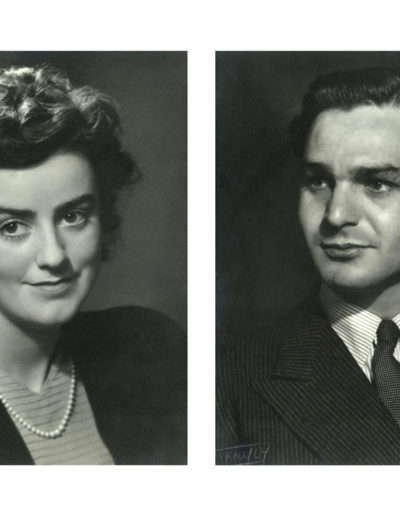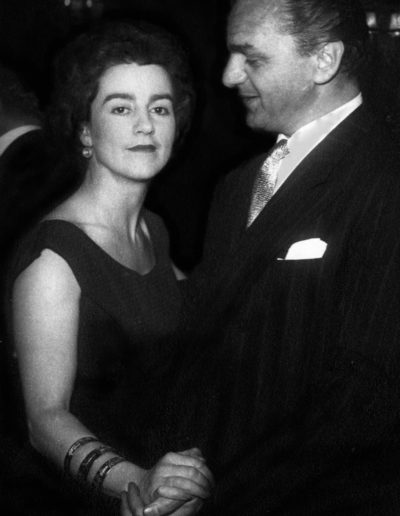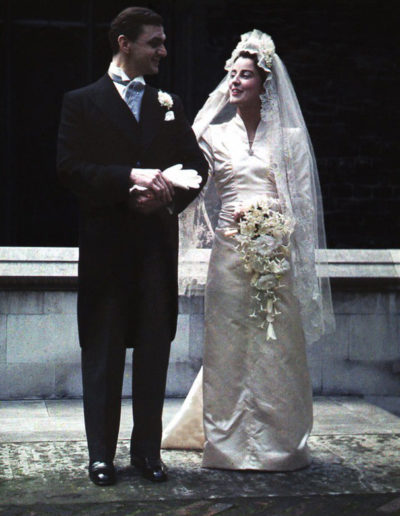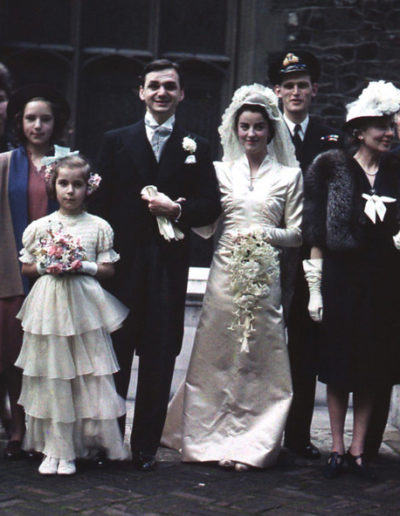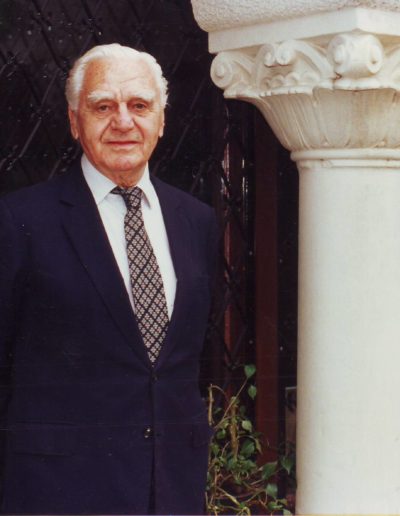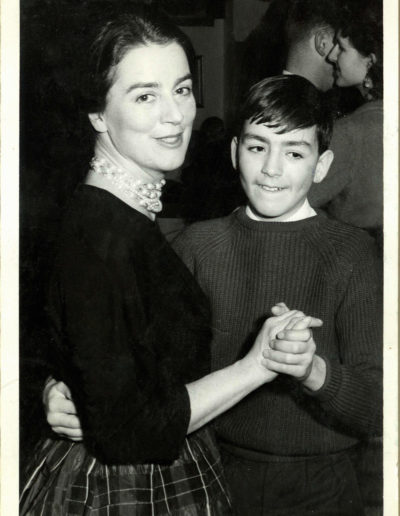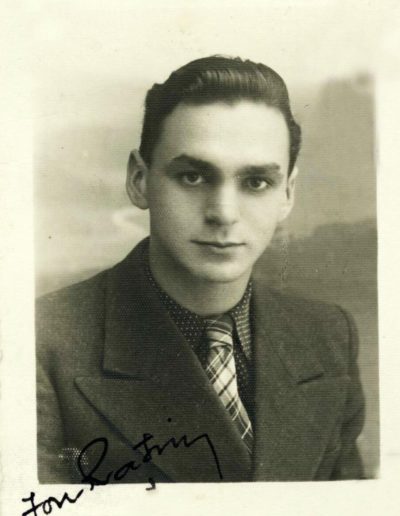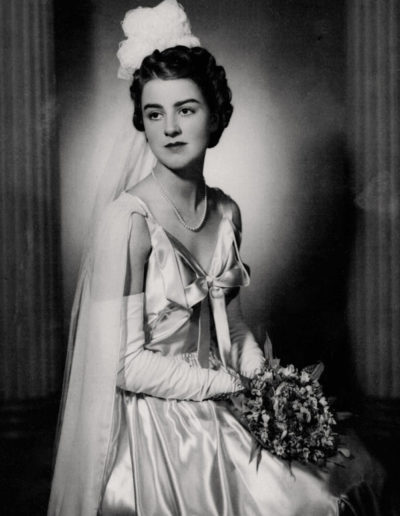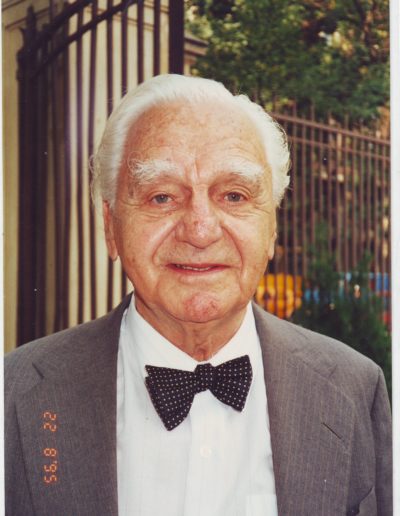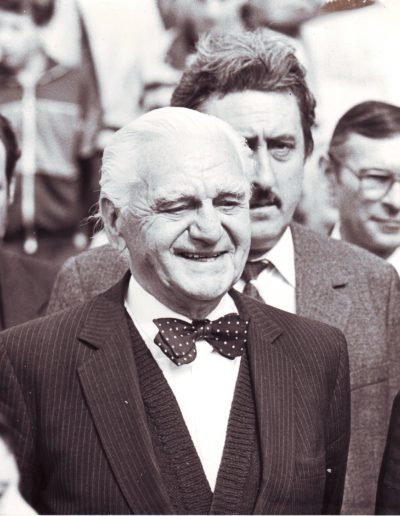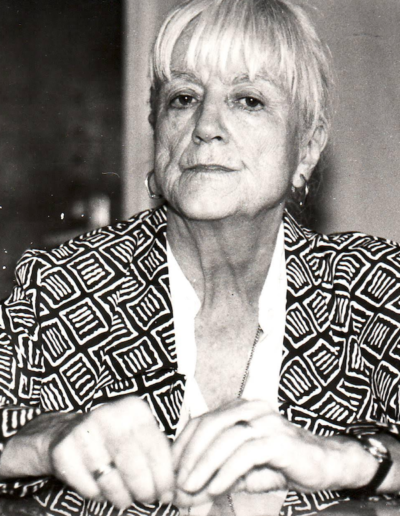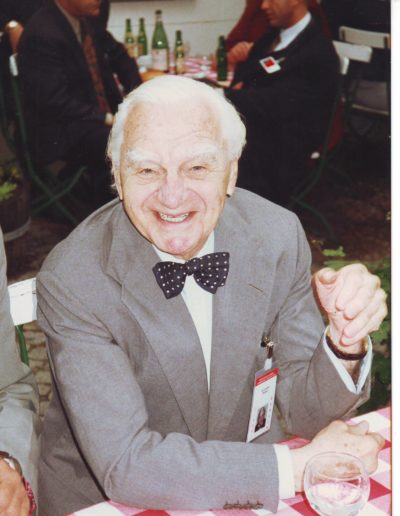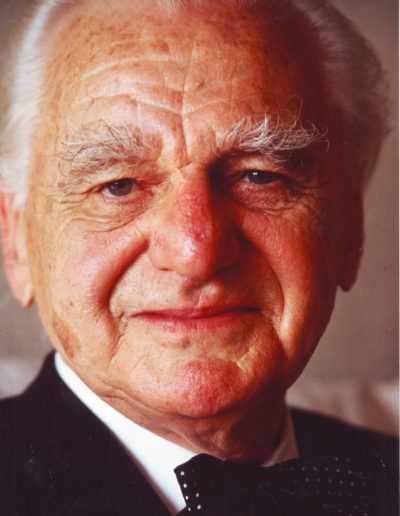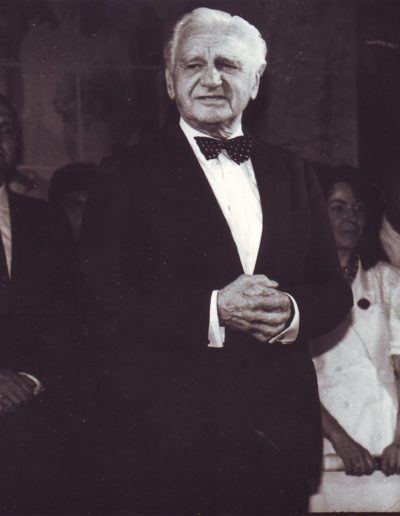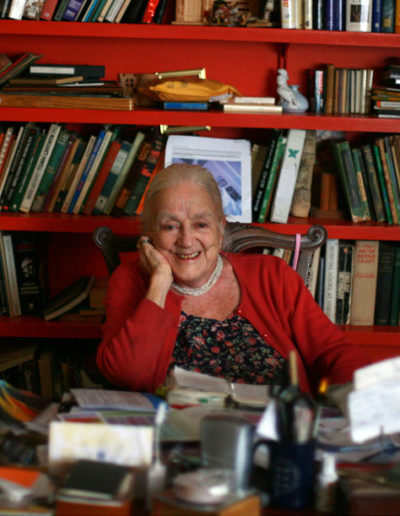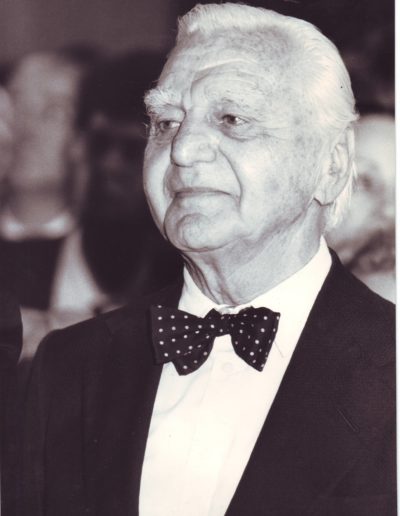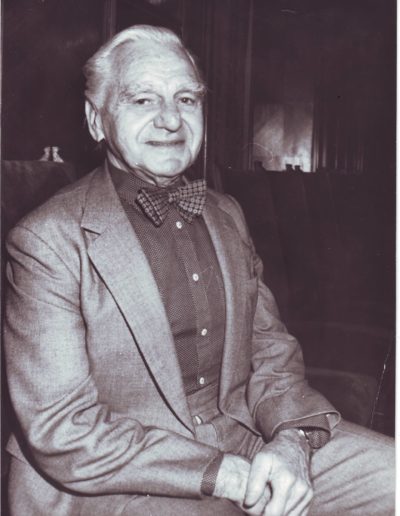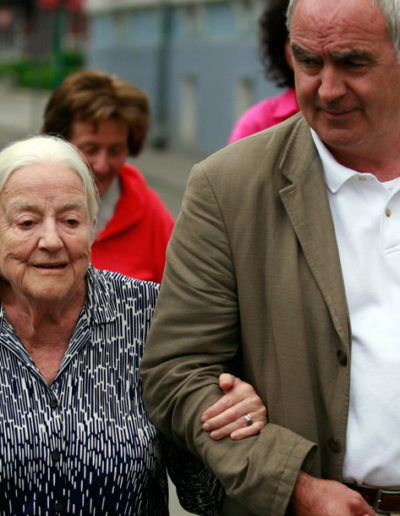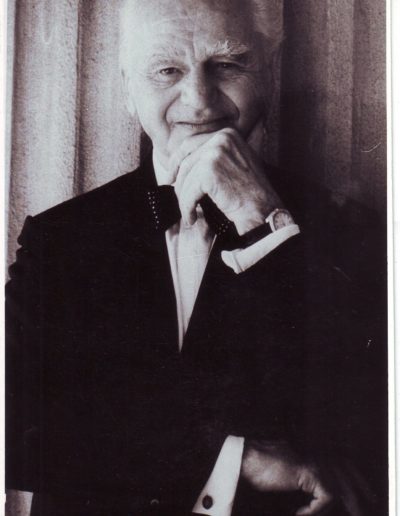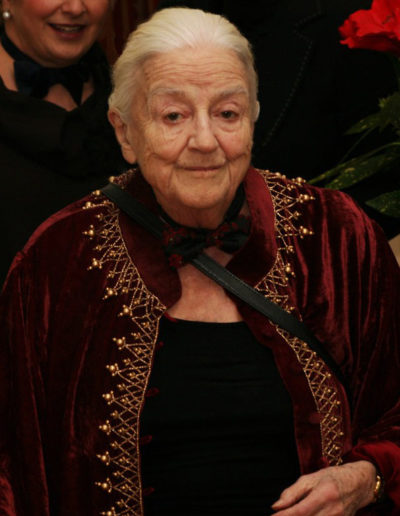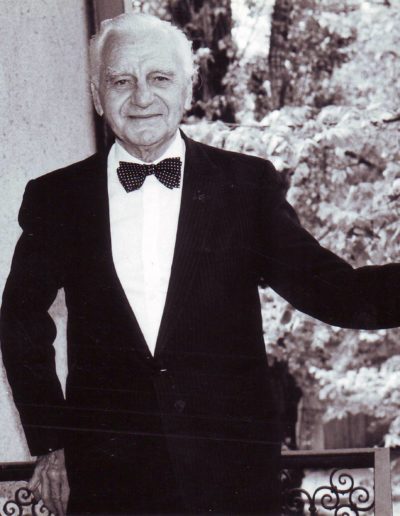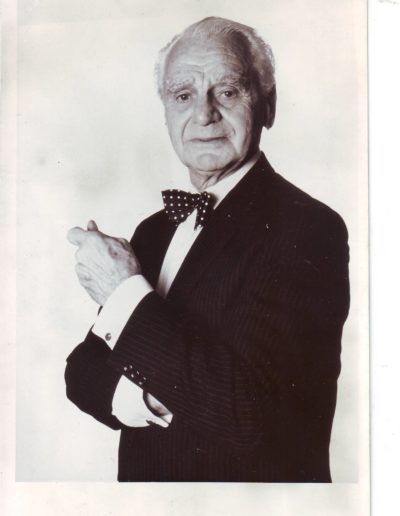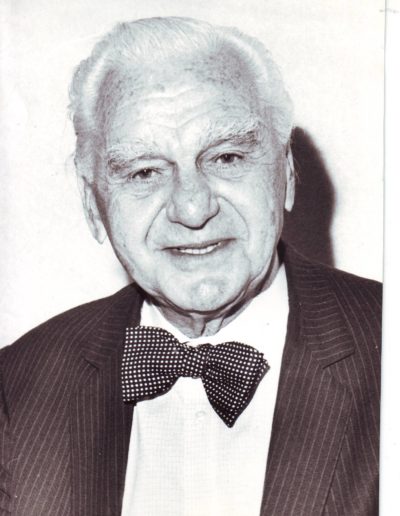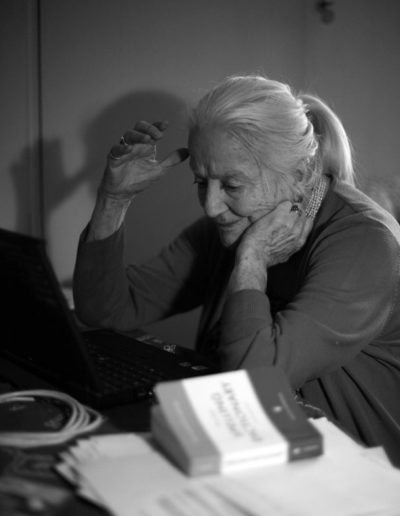Remembering Elisabeth Pilkington Ratiu
(4 April 1921 – 16 November 2016) – 100 Year Commemoration
Loving mother and wife, Elisabeth was a tireless supporter of Ion Ratiu’s efforts for the democratization of Romania and a lifetime promoter of the cause of mental health, never failing wherever she was to find ways to better the lives of those in need around her.
During the Romanian presidential elections, November 2014, Elisabeth Raţiu’s eyes were filled with tears at the sight of Romanians standing in line to vote in London. “How much it would have pleased Ion!” she said then to her son Nicolae, who accompanied her. Touched by the love that her husband had for Romania, Elisabeth Pilkington Ratiu always was a great supporter of the democratization processes taking place in our country.
Read more
Celebrating her commitment to the cause of mental health, the Ratiu Family Charitable Foundation and the Ratiu Democracy Centre established in 2016 the Elisabeth Pilkington Ratiu Mental Health Award, aiming to contribute to increasing the quality of knowledge and services in this field in Romania, as well as to reduce the stigma and prejudices associated with mental health disorders. The 2021 call of proposals will be launched soon.
Read more
Ion Rațiu
(1917-2000)
Ion Ratiu, the elected leader of the World Union of Free Romanians, based in London, was the most outspoken and consistent voice of opposition to Nicolae Ceausescu. Journalist, broadcaster and author, he was also a successful businessman in shipping and property, while simultaneously assisting in the rescue and support of many who fled Ceausescu’s dictatorship.
Ion Ratiu was born in Turda, Transylvania, on 6 June 1917. Eldest son of Augustin Rațiu, first Romanian prefect of Turda County, Turda City mayor and councillor at both county and municipal levels and nephew of Ioan Rațiu, one of the leaders of the Memorandum on behalf of Romanians living in Transylvania. His mother, Eugenia, was the niece of Romanian writer and activist Ion Codru- Drăgușanu.
British Years
After studying Law and joining the army, in April 1940 he entered Romania’s Foreign Service. He was sent to London as a chancellor at the Romanian Legation under Minister Viorel V. Tilea. Shortly afterwards, with Romania’s alignment with the Axis powers, the young Ratiu resigned his post and obtained political asylum in Britain. He won a scholarship to study economics at St. John’s College, Cambridge. In 1945 Ion Ratiu married Elisabeth Pilkington in London.
After the communists came to power in Romania in 1947, Ion Ratiu remained in exile in London. Even from the beginning of WWII, he joined the fight against totalitarianism of any political colour, helping to organise the Central European Student and Youth Society.
Pursuit of Free Romania
In the late 1950s, he started publishing the Free Romanian Press, a weekly news bulletin. He also contributed regularly to the BBC Romanian service, Radio Free Europe, or The Voice of America. In 1957, Ion Ratiu published his successful critique of Western attitudes towards the Soviet Union and communism, ‘Policy for the West’.
In 1975, the year he published ‘Contemporary Romania’, he decided to devote all his energy to the pursuit of a free Romania. He played a key role in the setting up of the World Union of Free Romanians, of which he was elected president at its first congress in Geneva (1984). Shortly after this, he started publishing The Free Romanian / Romanul liber, a monthly newspaper in English and Romanian.
Return to Romania
After 50 years in exile he returned to his homeland in 1990 to contest the presidency. Although he won a seat in Parliament, and was to serve his country for his last ten years, his failure to win the presidency was a disappointment to many. Even today on Romanian streets, Ion Ratiu is remembered fondly, often referred to as “the best president Romania never had”.
Ion Ratiu died in London on 17 January 2000, surrounded by his family. In accordance with his wishes, he was buried in his home town of Turda. His funeral was attended by over 10,000 people. His legacy is continued by the Rațiu Family Charitable Foundation, he founded with his wife and partner Elisabeth, and by the Turda based Rațiu Center for Democracy.
Elisabeth Pilkington Raţiu
(1921 – 2016)
Elisabeth Pilkington grew up in the Lancashire countryside of the UK, overlooking the industrial town of St Helens which four generations of Pilkington Brothers, the family glass manufacturing business, had transformed into the Mecca of UK flat-glass production.
At the outbreak of WWII, Elisabeth served her country for two years as a Red Cross nurse in a Manchester army hospital followed by Social Science studies at London School of Economics. The School had been evacuated to Cambridge for the duration of the war, it was at this time she met the young Romanian postgraduate student and diplomat, Ion Raţiu.
The couple was married at the Savoy Chapel in London’s West End in 1945. Elisabeth immediately took out Romanian citizenship, fully expecting to accompany her husband back to post-war Romania to campaign in the 1946 general election. But Ion, who had already showed disturbing signs of tuberculosis prior to their marriage, collapsed in the autumn of 1946 and entered a sanatorium in Davos, Switzerland. Here they were joined by their first son, Indrei, born in 1946, and shortly afterwards, in 1948, their second son Nicolae was born.
Besides her family life, she found time to apply her social science skills working full-time as an almoner for a leading London hospital. Elisabeth became increasingly interested in mental health conditions within her own London community of Kensington and Chelsea. After further study and a growing commitment to her local community mental health services, she was eventually elected Chairman of Kensington & Chelsea “Mind” – a leading British mental health service provider.
Following the death of her parents Guy and Margery Pilkington, Elisabeth, her four brothers and other close Pilkington relatives joined forces to establish and endow two remarkable ventures: the Fairfield Hospital and the Rainford Trust – a leading grant-making charity focused principally on those parts of the world where Pilkington Brothers, the family firm, conducts its business.
When Ion, from 1974 onwards, made the worldwide rallying of free Romanians his principle priority, Elisabeth recommitted to his cause, agreeing to leave behind the interests and businesses that she had patiently built up over the course of their marriage. Over the next few years, the couple travelled extensively for the first time, visiting Romanian communities throughout the world.
During this period, besides their visits to Washington DC, Elisabeth and Ion divided their time between England, Switzerland and the USA where Savannah, Georgia was home to Ion’s shipping business, Regent Line. It was here that she was invited to take part in the establishment of a second Hospice project and trained as a volunteer home visitor.
But in 1990 her life was to be turned upside down yet again. After the fall of Ceauşescu, Elisabeth chose without hesitation to accompany her husband back to Romania and to an uncertain future. She participated in Ion’s 1990 presidential campaign and courageously experienced first- hand the brutal bullying tactics of the Romanian National Salvation Front in its efforts to quash all opposition to its neo communist candidate Ion Iliescu.
The daily stream of desperate health cases at Elisabeth’s Bucharest front door led to the establishment in 1993 of Fundaţia Raţiu Romania, with the initial goal of providing treatment, in Romania, for children and young people suffering from leukemia. So successful was the Foundation’s leukemia program that after only seven years, by 2000, the Romanian government had installed three bone marrow transplant units and taken on full responsibility for the care of childhood leukemia cases in the country.
Since the death of her husband Ion in 2000, she has once again made London her home. She passed away in October 2016. In recent years Elisabeth’s work has been recognized by awards from several organizations: Bucharest Business Week, the President of Romania and the US State Department, for work with the Disabled.

